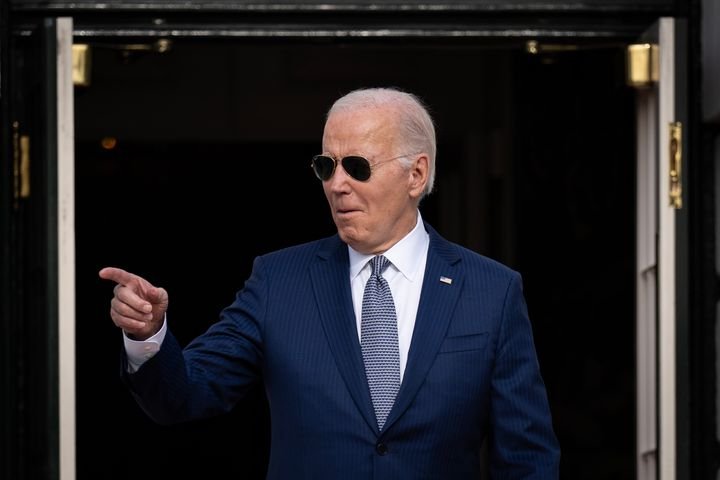In a unique turn of events, a grassroots effort known as Granite State Write-In orchestrated an unconventional campaign in New Hampshire, spending approximately $70,000 on materials and deploying a dedicated team to propel President Joe Biden to victory in the state’s primary, despite his deliberate absence from the official ballot. This strategic move came in response to a dispute between Biden and the state regarding the primary date, prompting the President to forgo appearing on the ballot. To bypass this challenge, the volunteer coalition and a super PAC invested a total of $1.4 million in mailers, digital ads, and newspaper advertisements, aiming to secure a win for Biden.
The decision not to participate in the New Hampshire primary stemmed from a disagreement over the contest’s timing. The Democratic National Committee (DNC) instructed the state to adjust its schedule, with South Carolina taking precedence as the first state in the presidential selection process. Despite the DNC’s warning of sanctions for states deviating from the official calendar, Biden supporters launched an unofficial campaign encouraging Democrats to write his name on the ballot.
The victory, declared by news organizations immediately after polls closed, marked President Biden’s first triumph in the 2024 presidential competition. The win, however, was far from guaranteed, as other candidates such as Rep. Dean Phillips and self-help author Marianne Williamson challenged DNC rules by appearing on the New Hampshire ballot. Additionally, some independents diverted their support to Republican candidate Nikki Haley, underscoring the uncertainty surrounding Biden’s success in the absence of a traditional campaign in the state.
Biden’s absence from New Hampshire since 2022 raised concerns among his supporters, who questioned the effectiveness of a relatively low-key campaign initiated only a few months prior through virtual meetings. Despite these reservations, the grassroots efforts proved successful, with the President securing victory even in the face of challenging circumstances.
A week before the primary, over 300 volunteers convened on Zoom to devise a strategy for rallying Democrats across the state. The resulting plan included unconventional events like bonfires, house parties, and sign-waving gatherings. The commitment of volunteers like Noemi Wierwille and Sally Hatch, who organized events and coordinated sign-holding schedules, showcased the determination to influence voters and defy expectations.
On primary day, volunteers braved freezing temperatures, standing at key locations with printed signs providing instructions on how to write in Biden’s name on the ballot. State Senator David Watters, an original organizer of the write-in movement, emphasized the significance of the primary as a platform for citizens to voice their opinions, regardless of political directives or financial influences.
Concerns about potential interference from “fringe” candidates prompted the initiation of the write-in campaign. Democratic leaders feared that candidates like Robert F. Kennedy, running as a Democrat with 10% support, could pose a threat to Biden’s image. When Kennedy later announced his independent candidacy, Rep. Dean Phillips emerged as another challenger, albeit one with a more moderate stance. Despite Phillips’ efforts, Biden maintained a substantial lead in polls, securing 61% support compared to the challenger’s 16%.
Khanna, a prominent figure in the Democratic party, expressed confidence in voters’ dedication to the write-in effort, highlighting their support for Biden despite reservations about the DNC. The persuasive arguments put forth by the campaign resonated with many voters, leading to Biden’s decisive victory over Phillips in the state.
In the aftermath of the New Hampshire primary, the success of the write-in campaign underscored the resilience of grassroots movements and the ability of determined volunteers to shape electoral outcomes, even against formidable odds.
